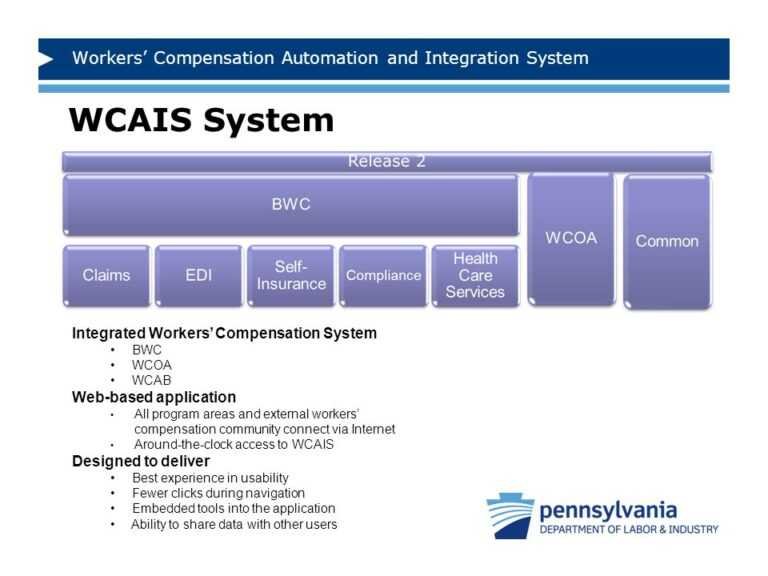What Does Liquidity Refer To In A Life Insurance Policy?
What Does Liquidity Refer To In A Life Insurance Policy? The main purpose of life insurance is to support your family financially in the event of your death. However, some types of life insurance policies have additional features that allow you to withdraw money from your policy during your lifetime.
Liquidity in life insurance refers to the ease with which you can withdraw money from your life insurance policy. Life insurance policies with a cash value component, such as whole life insurance policies, are liquid because you can easily withdraw or exchange the policies for cash. Term life insurance is illiquid.
Most people only need the basic coverage that a term policy provides. However, having liquidity in your life insurance policy can boost emergency or retirement funds for those with more complex financial needs.
What Does Liquidity Refer To In A Life Insurance Policy?
Liquidity refers to a policyholder’s ability to quickly access their benefits. So if something happens and you need money fast, you can get it out of your life insurance policy. Read on to learn more about liquidity and how it affects your life insurance.
What is liquidity in life insurance?
Liquidity in life insurance refers to how quickly and easily a person can convert a policy into cash, during the insured’s lifetime or after his or her death. It may apply to the accessibility of funds for both policyholders and beneficiaries.
In general, all types of life insurance policies must provide a liquid payment to beneficiaries upon the death of the insured. However, some policies also provide liquidity for the life of the policyholder; They are known as “life benefits” because you can access the cash value of the policy or, in some cases, the death benefit while you are alive. This kind of policy is:
Cash Value Life Insurance Policies
A policy with one or more early death benefits for living expenses
In general, only permanent life insurance policies have a cash value and can therefore be liquidated. These policies cover the insured for a lifetime, as long as the insured pays on time.
If you have permanent life insurance, a portion of your monthly premium is accumulated within the policy, and tax is deferred. That becomes the cash value of the policy, which can count as an asset for some purposes. You may also be able to use your policy’s cash value and death benefit as collateral for a secured loan.
In contrast, term life insurance only covers the insured for a predetermined period, such as five, 10, or 20 years, or up to a certain age. These policies generally do not allow cash value to be built up, but some insurers allow you to add additional life support drivers that provide liquidity over the life of the insured.
Is life insurance a liquid asset?
Only certain types of life insurance are considered liquid assets. A liquid asset is something you own that can be easily liquidated, that is, it can be turned into cash, such as your investment account. For your beneficiaries, the death benefit is a liquid asset when paid out.
Your life insurance is a liquid asset for you if:
- Your policy has a cash value: once your cash value has increased, you can withdraw your policy as a retirement account.
- You can exchange your policy for cash: If you no longer need or can afford permanent life insurance, you can exchange it and get some of the cash value back.
- You can sell your life insurance: Older or seriously ill policyholders can sell their life insurance when they no longer need it. This is also called a viatical settlement.
In any of the above scenarios, your life insurance policy is a liquid asset because you can easily get money out of it. However, life insurance is often not the best way to build your wealth: by selling or relinquishing a policy, you can earn less than you paid on the policy, while cash value investments have a low-interest rate. But this policy can be valuable if you have maximized other investment options.
A certified financial planner or independent insurance agent can help you decide if a liquid policy is right for you.
Types of life insurance policies that provide liquidity
Liquidity in life insurance applies to cash value permanent life insurance policies, including full, universal, and variable life insurance policies.
Permanent life insurance costs 5 to 15 times more than term insurance, in part because a portion of your premiums goes toward financing your cash value. Different types of permanent insurance increase your cash value in different ways, offering a higher potential return on investment and thus more liquidity.
- Lifetime: Grows at a rate set by your provider with a guaranteed minimum, such as a savings account
- Universal Life Insurance: Earns interest based on the performance of the market index (e.g. the S&P 500) with a minimum and maximum income set by your provider
- Variable life: you choose which funds to invest in and gains and losses depend on market performance
Some policies, such as universal and variable universal insurance, allow you to use your accrued cash value to pay your premiums, freeing up your available cash for other expenses and investments.
How Can Liquidity Be Guaranteed In A Term Life Insurance Policy?
Term insurance policies are not liquid assets, but they do have the option of converting to a liquid policy. Most policies have a term conversion clause that allows you to convert some or all of your term coverage into a permanent policy.
The option to convert your policy allows you to extend your cover, possibly for a smaller amount, if you still need it towards the end of your term. A term conversion also creates a new tax-deferred savings account, but remember that it takes decades for an investment to grow. If you are older, this may not be the best way to increase your wealth.
If you don’t have convertible term life insurance, ask your provider to add a converter to your policy.
How Policyholders Benefit From Liquidity?
In addition to the peace of mind of knowing that your beneficiaries will be well taken care of in the future, you can benefit from the liquidity of your policy for the rest of your life. There are two ways to access the liquidity of a policy during your lifetime: take advantage of the cash value and get an advance on the death benefit. That’s how it works anyway.
Money Value
If you own a cash value permanent life insurance policy, you can build liquidity throughout your life by withdrawing money or borrowing the cash value as a loan. In general, any withdrawal that is greater than the amount you paid in cash through your premiums is taxable.
For example, let’s say you have had a policy for 15 years and it has a cash value of $125,000. He contributed $100,000 directly and $25,000 is due to growth. If you withdraw $115,000, the $15,000 in asset growth is taxable.
If you remove all cash value from your account, your insurance company may also cancel the policy entirely and your coverage will end.
If you borrow at your cash value, you generally don’t pay income tax. There will also be no fixed payment term, although the interest will still accrue and will be added to the principal of the loan. If you do not pay off the loan in full before the death of the insured, the outstanding balance of the loan will reduce the death benefit.
An important thing to remember when taking out a loan against your policy is that your policy may lapse if your loan balance is equal to or greater than the cash value of your policy. At that point, your insurer will likely surrender your policy and use the money to pay off the loan. If this happens, you may have to pay taxes and you will not receive any proceeds from your policy.
Many life insurance policies have a surrender period during which you pay costs if you withdraw money from the policy early. These periods vary by policy, so double-check before withdrawing.
Life Insurance With A Living Wage
No cash value life insurance policies can still provide liquidity through livelihood riders or ADB riders, who pay a portion of the death benefit before the insured dies if certain conditions are met.
In general, ADBs allows you to get a portion of your death benefit early if specific events occur as a result of your declining health. The most common types of ADB are for:
- Chronic illness: To qualify, you typically must lose the ability to perform at least two daily activities (ADLs), such as bathing and eating.
- Critical illness: If you experience a heart attack, stroke, cancer, or another event that the insurer considers critical, you may be eligible for this benefit.
- Terminal Illness: If you have a life expectancy of six months to two years, you may be eligible for this benefit (the period varies between insurers).
- Long-term Care: This is similar to the Chronic Illness rider, in that to qualify, you must lose the ability to run two ADLs. However, it usually includes a waiting period and offers a monthly fee rather than a lump sum.
Because the funds for this rider come directly from the death benefit, beneficiaries receive a lower death benefit when the insured dies.
How Do Beneficiaries Benefit From Liquidity
Life insurance policies provide benefits to beneficiaries when the insured dies. This feature has several benefits, including providing financial support to your loved ones after your death. That’s especially reassuring when you couldn’t have done it any other way. Here are more ways your beneficiaries benefit from life insurance liquidity:
During Follow-Up
In general, life insurance policies are non-probate assets, so your beneficiaries get quick payments that they can use for things like mortgage payments and living expenses while your estate is settled in court. Probate is a lengthy and sometimes expensive legal process where the will of the passing person is verified by a court and the executor divides the assets accordingly. The estate’s non-life insurance assets can sometimes go through a long estate, delaying beneficiary access and creating financial difficulties.
High-Value Features
Having liquidity through life insurance can help beneficiaries avoid liquidation of assets or family heirlooms to cover high-value estate costs, including:
- Legal Expenses
- Audit fees
- Other administration costs
- Inheritance Tax
For those with assets that could exceed the federal property tax exemption of $12.06 million (as of 2022), it’s also worth considering strategies to reduce taxes, such as placing the life insurance policy in an irrevocable trust. In general, this would exclude you from the value of your estate and limit your exposure to estate taxes. Such strategies may also be warranted if your state also assesses estate and/or estate taxes.
How To Access Liquidity In Your Life Insurance Policy?
There are several ways to get money out of your life insurance policy. The most common way is to take out a loan against the policy. This means that you borrow money from the insurance company and repay it over time. Another option is to include the cash value of the policy. This is different from taking out a loan because you are taking the money out of the policy and not borrowing it from the insurance company.
Finally, another way to access your life insurance money is to sell it. Again, you get a lump sum from the insurance company.
Policy Loans
You must pay interest if you default on your loan. Interest is added to your balance. If you can’t afford it, your policy will expire. If you die, the remaining money on the loan will be deducted from your beneficiaries’ death benefits.
Dividends
When you buy permanent life insurance, you can get your dividend in cash. However, if the amount is higher than what you have paid in premiums, you will have to pay tax.
Withdrawals
You can withdraw money from a permanent life insurance policy. You do have to pay a fee, but you don’t have to pay tax on the money. You have already paid for it with your premiums.
Sell The Policy
You can sell your insurance policy for more than the cash value of the policy, but less than the death benefit. This is because the buyer is responsible for the premium payments and becomes the new beneficiary.
Premium Refund
This return of life insurance premium driver will refund all premiums paid in one lump sum if you survive the term. If you cancel your permanent life insurance policy early, you may be able to get a portion of your premium back.
How Do You Ensure Sufficient Liquidity In Your Policy?
There are several things you can do to ensure that you have sufficient liquidity in your life insurance policy. The first is to make sure you are familiar with the terms of your policy. This way you know what to expect if something happens and you need to have access to your policy money. Another thing you can do is look for a policy with good liquidity. This ensures that you can quickly withdraw money from your policy if necessary. Finally, I recommend putting together a budget and saving for unexpected expenses. This way you have money left over if something happens and you have to use the liquidity in your life insurance.
Is It Worth Taking Out A Life Insurance Policy That Provides Liquidity?
Buying cash value life insurance with liquidity is best for people who can afford the expensive premiums and need additional tax-deferred investment accounts. For most people, the high cost of permanent insurance and the low return on cash value makes it a poor investment.
Your long-term finances should be to buy term life insurance that expires in your retirement years and invest the money you’ve saved by skipping a cash value policy. If you later find that you need some liquidity in your life insurance, you can explore forward conversion options.
Frequently Asked Questions (FAQ) – What Does Liquidity Refer To In A Life Insurance Policy?
How do I find out how liquid my life insurance is?
A good way to find out how liquid your life insurance is is to talk to your insurer. Ask them what options you have to withdraw or borrow money against your death benefit.
What is the fastest way to have the liquidity of a life insurance policy?
The fastest way to access the funds of a life insurance policy is to withdraw or borrow its cash value. Keep in mind that you may have to pay a surrender fee if you try to access it too soon, and if a loan is equal to or greater than the cash value of your policy, it could result in your insurer giving up the policy and forfeiting the cash value used to pay off the loan.
What Does Liquidity Refer To In A Life Insurance Policy?
Liquidity in life insurance refers to the ease with which you can withdraw money from your policy.
Is life insurance a liquid asset?
The present value of a permanent life insurance policy is a liquid asset, but the death benefit is not. Term life insurance policies are not an asset.
What types of life insurance policies have liquidity?
A standing policy from which you can withdraw or surrender money for cash has liquidity.
Main learning points
Liquidity is a measure of how easily you can convert something you own, an asset, into cash.
In life insurance, liquidity refers to the ease with which you can withdraw money from your policy during your lifetime.
Only permanent life insurance policies are liquid because of the cash value component.
Most people should buy term life insurance and invest the difference instead of buying a more expensive policy with cash.
Conclusion – What Does Liquidity Refer To In A Life Insurance Policy?
If you’re looking for a life insurance policy that provides you with liquidity in an emergency, we can help. We offer a wide range of policies from some of the best companies in the industry, and our team is on hand to help you find the right one for your needs. Request a quote today and let us show you how easy it is to get coverage that gives you peace of mind.
Thank you for reading this post on liquidity in life insurance. I hope it has been helpful. If you have any questions, please feel free to contact us. We are happy to help you. Have A Nice Day!







